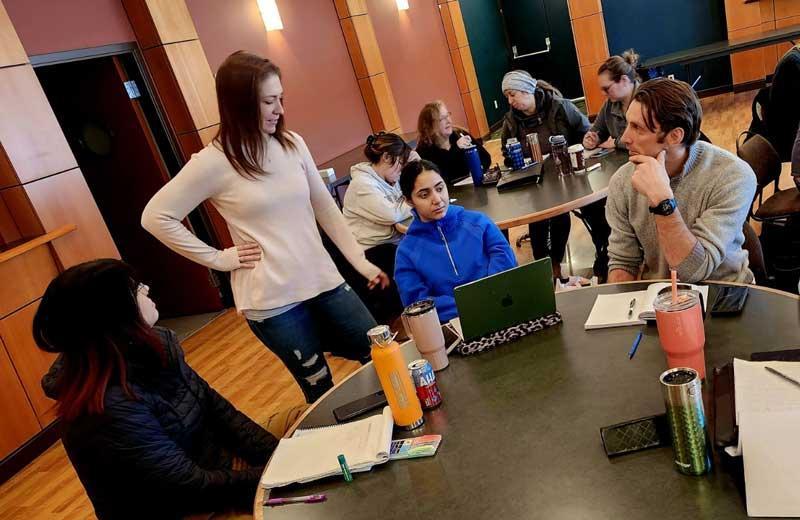Hank Lukyn, the new social worker at the NH Virtual Clinic, recently attended the first regional social work orientation workshop held at Northern Health. He was hired in November 2023 after having worked as a probation officer with Prince George Community Corrections for the past ten years. Hank is one of the few people at NH who was able to experience this new onboarding process when the regional orientation model completed a pilot project for social workers with the workshop in January 2024.
When Hank first started as the virtual clinic social worker, he noticed very quickly that there was a wide range of services that can be provided through the virtual clinic.
"I could go from one phone call to another doing a variety of things, like having advanced care planning conversations, completing disability paperwork, or sending referrals to other community agencies," he said.
Since the role is fairly new, there was a lot of trailblazing and learning involved. Hank described how supported he felt when he onboarded with NH initially through avenues such as shadowing other social workers and taking courses on the LearningHub, Northern Health’s internal education platform.
However, he says he was "still piece-mealing things together and had a lot of questions" -- because it's hard to know what you don't know at the start.
Hank identifies as a true Northerner. He grew up in Smithers but has lived in Prince George for over 16 years and has traveled to many of the Northern communities over the years.
"I know the service gaps they’re experiencing. A lot of the communities don't have social workers and when they do, there can be long wait lists,” he said. “So, the work is rewarding because these communities have a place in my heart. There’s a lot of potential for virtual service delivery as we create partnerships in different communities."
"I realized I'm not alone, and it helped me understand my role a little better,” he said when asked what difference it made to attend a regional orientation versus a site-specific one. “I realized it's going to take time to understand the landscape at NH and that is OK. There are so many avenues for social work in the region. It gives perspective not just to me but also the other new social workers about the services within the region. Not all communities have the same services so that regional model is really important.
“Networking with the presenters and panelists, putting faces to names, putting roles to departments with presenters, and having people there to answer questions was incredibly helpful. The NH website is great, but it becomes more real when you attend the regional orientation."
Hank also mentioned that sometimes when you're new to a job you end up "going in circles if you don't know what you should or should not be doing.” He added that understanding the regional model is empowering, “because I know my role a little better now and feel I can dig a little deeper when trying to help people. I don't feel so siloed."
Not only does the regional social work orientation model have applications for social work clinicians at Northern Health, it also paves a new way for practicum students to join the organization.
"If I had had something like this during my practicum times, I likely would have applied to Northern Health a lot sooner," says Hank.
After this model has been evaluated using participant feedback, project leader Furqana Khan, Program Specialist with Primary and Community Care, hopes that other disciplines can take the learnings from this model and use them to implement their own regional orientation models.














Comments